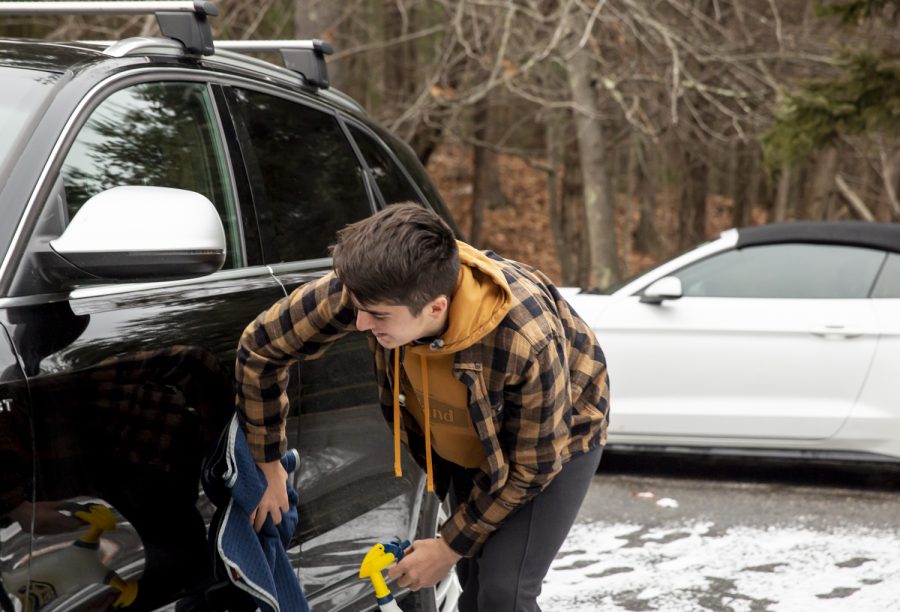Car hobbyists maintain their rides
Students work on cars to save time, money
On average, senior Thomas Davis services about five to six customers with his car detailing business, Top Caliber Auto Detailing, per month.
March 11, 2022
While many students don’t know how to complete basic car maintenance and repair, some save money by working on their own cars and may even consider doing so a hobby.
Staying up to date with car maintenance can save drivers thousands of dollars further down the road. Between basic oil changes, filling other fluids and changing tires, it is possible to prevent irreversible damage to the car. Avoiding these expensive repairs can also save time that is wasted by leaving a vehicle at a shop.
Senior Thomas Davis is a proponent of keeping up with maintenance and paying attention to changes in his car’s performance. Without maintenance, many cars would not be on the road today, including his. Davis said that due to shortcuts taken by the dealership, the exhaust system of his Ford Mustang GT melted through the rear brake lines, which control the brakes on the rear tires.
While the front brakes are the most important to have in order to stop, the rear brakes decrease stopping distance and add control. Without them, it could be a very dangerous situation. Davis knew he was losing his brakes when his braking distance increased, and the rear of his car started to lose control while decelerating.
“I didn’t want to lose my brakes entirely, so I decided to take it to an actual mechanic to have the brake and exhaust systems repaired,” Davis said.
According to Davis, if he did not pay such close attention to his car, it may have become a more dangerous situation.
Meanwhile, regularly filling fluids such as oil and coolant can extend the life of an engine and prevent major damages. These relatively simple maintenance tasks can be performed at home, but few students know how to do so.
According to a Harbinger survey of 127 students via Google Forms from Jan. 3 to Jan. 5, only 24% of students know how to do basic maintenance, and 9% have more than minimal experience doing so.
Besides completing basic maintenance, there are some students who work on cars as a hobby. Between cosmetic and performance modifications, they become their own mechanic.
Senior Jack Quinlan spends hours working on his cars, making them faster, more visually appealing and better handling.
“I began by helping my stepfather around his shop, working on his cars,” Quinlan said. “Eventually I bought my own car and began the process of building it.”
Quinlan enjoys working on his 1980 Chevrolet Monza, which he considers a “project car.” The concept of a project car is appealing to many who are interested in cars. These cars are often older models with less electronics, and a large aftermarket for performance parts.
Senior Brogan Madden hopes to get his hands on a project car soon to hone his skills, rather than just learning the ideas behind mechanical work.
“It would be a great learning experience, and I can use the knowledge to work on the car and add it into a future career,” Madden said. “Every time I get the chance, I go to the dealerships or I do research online and learn as much as I can about cars or car parts.”
According to complex.com, to begin learning how to do work on your own car, one should begin with learning how to jump start or change a battery, change the oil, change a tire and change the air filters. It’s also important to know what not to touch—the most painful being any part of the engine while it is still hot—along with not opening any fluid reservoirs before the engine has cooled down.
The best way to learn how to do this basic maintenance is often watching a video on YouTube, and following a walkthrough.













